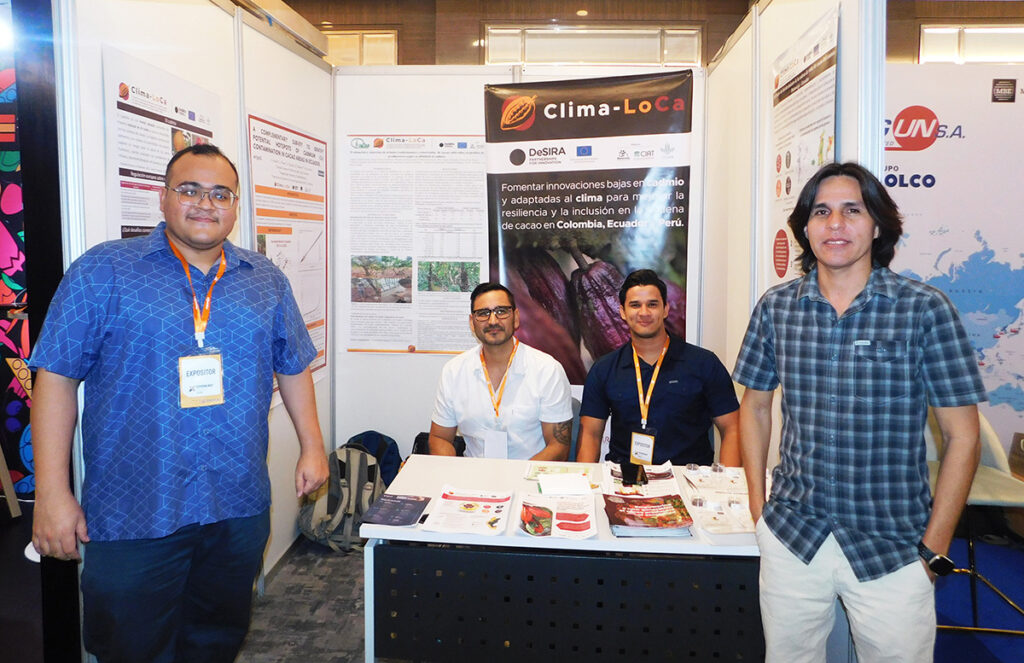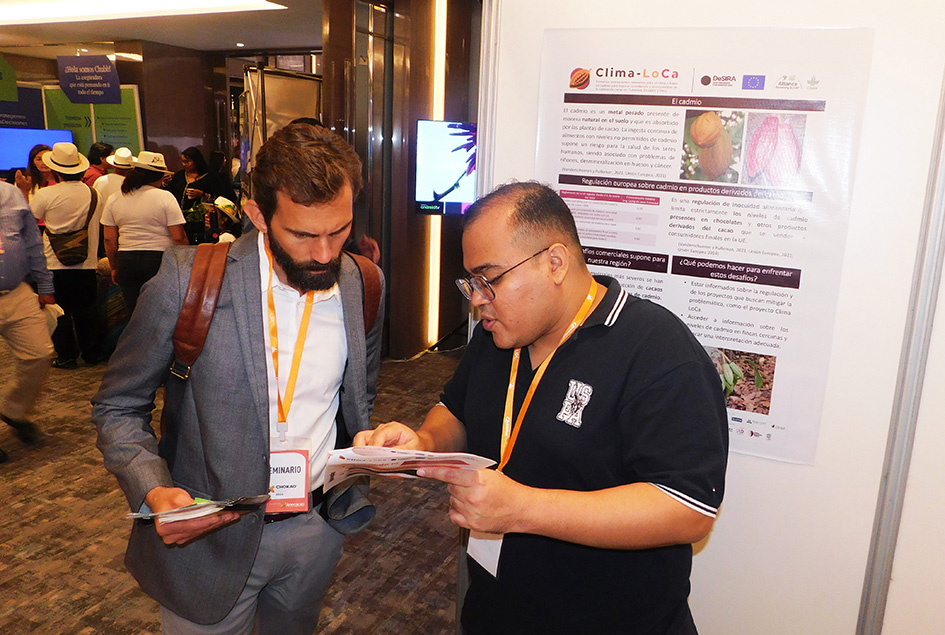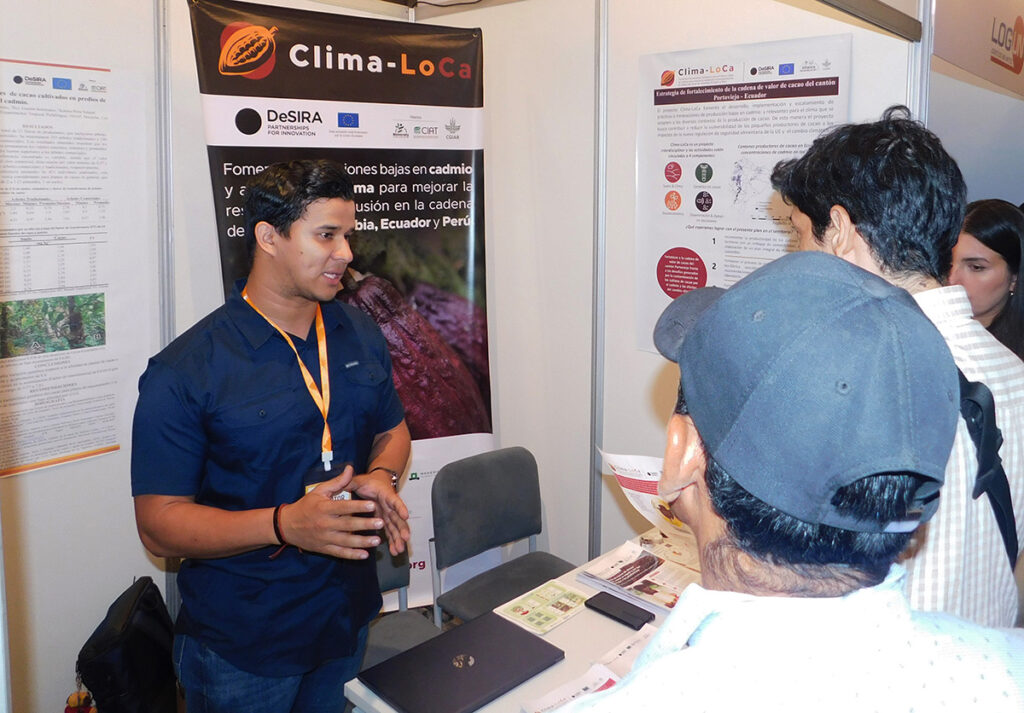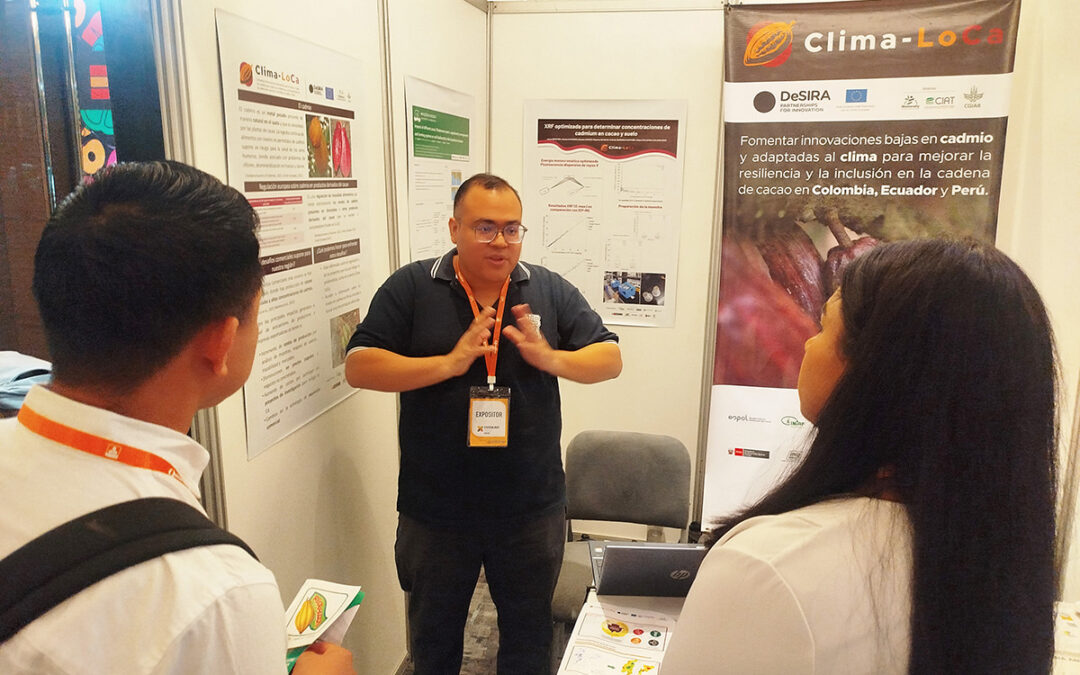- On September 10, 11, and 12, the project was present at an important fair for the Ecuadorian cocoa sector through its partners ESPOL, INIAP, and the Alliance of Bioversity International and CIAT.
- The main advances were presented during a seminar, in an ideal setting with the participation of key actors from across the cocoa value chain.
The National Association of Cocoa Exporters of Ecuador (Anecacao) organized a new edition of the Chokao Fair, held in Samborondón, Guayas, Ecuador. In its third edition, it brought together 65 exhibiting companies and more than 100 brands, with over 200 attendees. This prominent event in the Ecuadorian cocoa sector brings together various actors in the value chain, from producers to international buyers, as well as chefs, researchers, and other actors in the sector.

In this space, the Clima-LoCa project had a prominent presence with a stand in the Trade Fair area, where information was provided on the progress of research carried out by the partners participating in the different components of the project. This participation was made possible thanks to its Ecuadorian partner, the Escuela Superior Politécnica del Litoral (ESPOL), and the National Institute for Agricultural Research (INIAP for its acronym in Spanish).
Mirjam Pulleman, project leader, also gave a keynote speech entitled “Innovations to increase the resilience and inclusiveness of the cocoa chain” at the seminar, which was also organized as part of the parallel activities included in the event. Regarding her presentation, she commented:
“We seek to strengthen the capacities of relevant actors in the sector to develop and scale innovations that enable adaptation to the impacts of cadmium safety regulations in cocoa and climate change. So Chokao is one of the spaces where we cannot be absent,” said Pulleman.
Eduardo Chávez from ESPOL also participated in Chokao and commented: “The project develops knowledge that will enable us to seek the best strategies for reducing the impact of cadmium in the cocoa value chain in the region. Some of these alternatives may be agronomic and are also being evaluated in a socioeconomic context.”

The stand of the Bioversity International and CIAT Alliance and the Clima-LoCa project was visited over the three days by a wide audience, including farmers, members of international cooperation organizations, company representatives, public sector officials, teachers, consultants, and students, among others. The project team present at the stand noted the great interest of actors in the cocoa value chain in learning about advances in research on measures to mitigate cadmium contamination and climate change. Visitors also showed considerable interest in cadmium contamination mapping and the potential impacts of climate change at the regional level.

About Clima-LoCa
Clima-LoCa is a regional, interdisciplinary project led by the Bioversity International Alliance and CIAT, implemented with partners in Latin America and Europe, and funded by the European Commission (EC). It seeks to promote low-cadmium, climate-relevant production innovations to improve the resilience and inclusiveness of the cocoa chain in Colombia, Ecuador, and Peru. The project is implemented with the following partners: KU Leuven, WUR, Agrosavia, INIAP, ESPOL, CIRAD, IRD, Senasa, INIA, and the Cocoa Research Centre.
About our partner ESPOL
ESPOL is a public university in Ecuador that has defined the development and dissemination of research and innovations with high social impact as one of its strategic objectives. Its priority areas include studies on sustainable agricultural transformation, the economic development of value chains, and climate change mitigation, generating various research projects that strengthen the cocoa value chain in Ecuador (ESPOL, 2023). As part of the Clima-LoCa project, ESPOL contributes with its Soil and Plant Nutrition Laboratory and the socio-economics team of the Faculty of Life Sciences to promote research and innovation activities focused on mitigating cadmium pollution and climate change.

